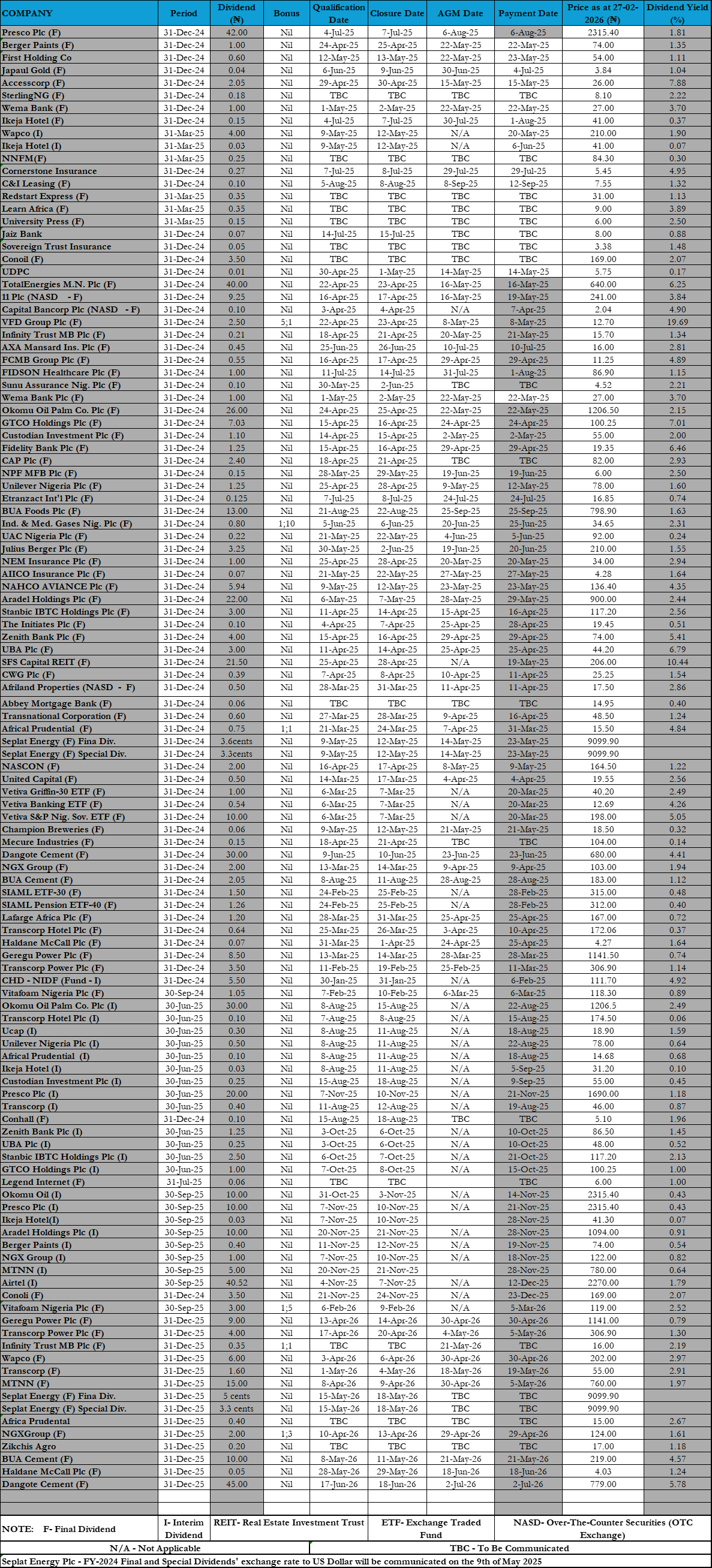
NGX Dip Amid Geopolitical Noise: Is There a Link to Trump’s Threat?
The Nigerian stock market closed the week on a bearish note, extending its profit-taking streak. Over the past five trading sessions, the All-Share Index (ASI) has declined by over 4,000 points, sliding from around 154,123.62 to 150,026.55, equivalent to a ₦1.8 trillion loss in market capitalization.
This latest pullback has trimmed the year-to-date (YTD) return to +45.27%, reflecting a notable shift in sentiment after October’s strong rally. While the sell-off began before the latest geopolitical flare-up, the timing has fuelled speculation that President Donald Trump’s recent threat of U.S. military intervention in Nigeria may have compounded investor anxiety.
Reassessing the Trump Threat
President Trump’s public remarks, threatening possible U.S. action over alleged religious killings in parts of northern Nigeria sparked immediate global reactions.
Reports from Reuters and other international outlets noted slight weakening in Nigeria’s sovereign bonds and a modest dip in the naira following the statement.
Market analysts view the episode as a headline-driven risk event rather than a structural shock. The regions cited in Trump’s warning are far removed from Nigeria’s commercial and financial centres, notably Lagos and Abuja and have limited direct exposure to listed corporates on the NGX.
Nonetheless, the rhetoric injected a layer of political risk perception, especially among foreign portfolio investors, who remain sensitive to geopolitical narratives.
What Else Is Weighing on the Market?
While Trump’s comments contributed to short-term jitters, several domestic factors remain more decisive in driving this week’s decline:
Capital Gains Tax (CGT) Concerns: The proposed 25% CGT on gains above ₦150 million, set to take effect in January 2026, has unnerved institutional investors.
Many are now booking profits ahead of potential tax liabilities.
Profit-Taking and Sector Rotation:
After a strong October rally, investors are rotating from high-growth stocks — particularly in industrials and consumer goods into defensive and fixed-income assets, leading to broad-based declines.
Macro and Policy Uncertainty:
Persistent FX volatility, elevated inflation, and unclear fiscal timelines continue to dampen confidence in near-term equity positioning.













